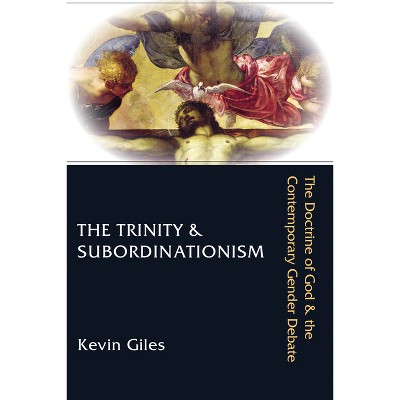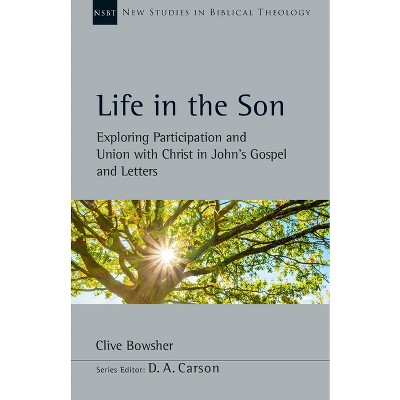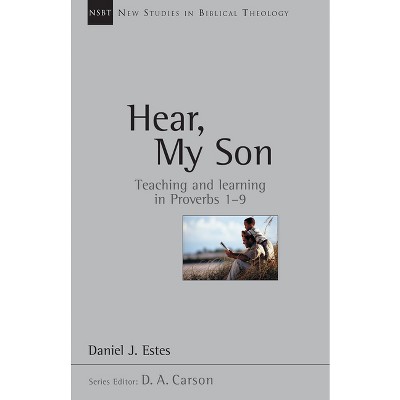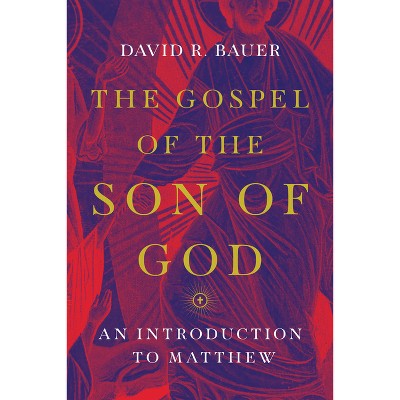About this item
Highlights
- Should all Christians, especially evangelicals, hold on to the doctrine of the eternal generation of the Son?
- About the Author: Kevin Giles (Th.D., Australian College of Theology) is an ordained Anglican minister who was in parish ministry for forty years.
- 270 Pages
- Religion + Beliefs, Christian Theology
Description
About the Book
Theologian Kevin Giles defends the historically orthodox doctrine of the eternal generation of the Son of God. He argues on biblical, historical and theological bases that, given its fundamental meaning, this doctrinal formulation is indispensable, irreplaceable and faithful to Christian revelation.
Book Synopsis
Should all Christians, especially evangelicals, hold on to the doctrine of the eternal generation of the Son? What is lost if we don't?Theologian Kevin Giles defends the historically orthodox and ecumenical doctrine of the eternal generation of the Son of God. He argues on biblical, historical and theological bases that, given its fundamental meaning, this formulation is indispensable, irreplaceable and faithful to Christian revelation. The book will be especially helpful in the current discussion of this doctrine. It will also be of interest to students, pastors and laypersons who want to delve into the Christian understanding of the identity of the Son of God and serious study of trinitarian theology.
Review Quotes
"A recommended read, not only for the particulars of the subject, but also for the lessons to learn concerning the necessary depth of understanding that today's generation of church leaders need to attain as a core component of their vocation."
--Roland Sokolowski, Regents Reviews, October 2012"Historic Trinitarianism has struggled to find meaning in the creedal confession that the Son is 'begotten, not made.' Giles has helped readers comprehend more fully the perils of subordinationism and the need to preserve the unanimous Christian tradition of 'the eternal generation of the Son.' Over all, this is a splendid work, readable, highly informative, and cogently argued."
--Kirby G. Applegate with Scott Horrell, Bibliotheca Sacra, January-March 2015"In The Eternal Generation of the Son, Kevin Giles hits a home run in terms of defending the traditional, orthodox doctrine mentioned in its title. He does it in three ways: this doctrine is the only way reasonably to interpret Scripture; it is the consensual teaching of historic Christianity; it alone safeguards against the heresy of subordinationism of the Son. Game won; case closed. Let's move on."
--Roger E. Olson, professor of theology, George W. Truett Theological Seminary"The argument is rigorous and persuasive, and Giles' defense of the doctrine is much needed and timely given the pervasive influence of evangelical scholars who advocate the abandonment of the doctrine of the Son's eternal generation."
--Matthew P. O'Reilly, Reviews in Religion and Theology, Volume 20, Issue 2"This study is marked by clarity of exposition and thorough footnotes, making it a valuable addition to the 'recommended' list for any graduate course on the doctrine of God. While the arguments draw upon evangelical commitments, students of the Catholic tradition would certainly benefit from its perspective on the discussion of God's triunity."
--Nancy Dallavalle, Theological Studies, (74) 2013About the Author
Kevin Giles (Th.D., Australian College of Theology) is an ordained Anglican minister who was in parish ministry for forty years. Giles has contributed numerous articles to scholarly journals and to IVP's Dictionary of Jesus and the Gospels and Dictionary of the Later New Testament and Its Development. Among his books are What on Earth Is the Church? and Patterns of Ministry Among the First Christians.
Shipping details
Return details
Trending Poetry












